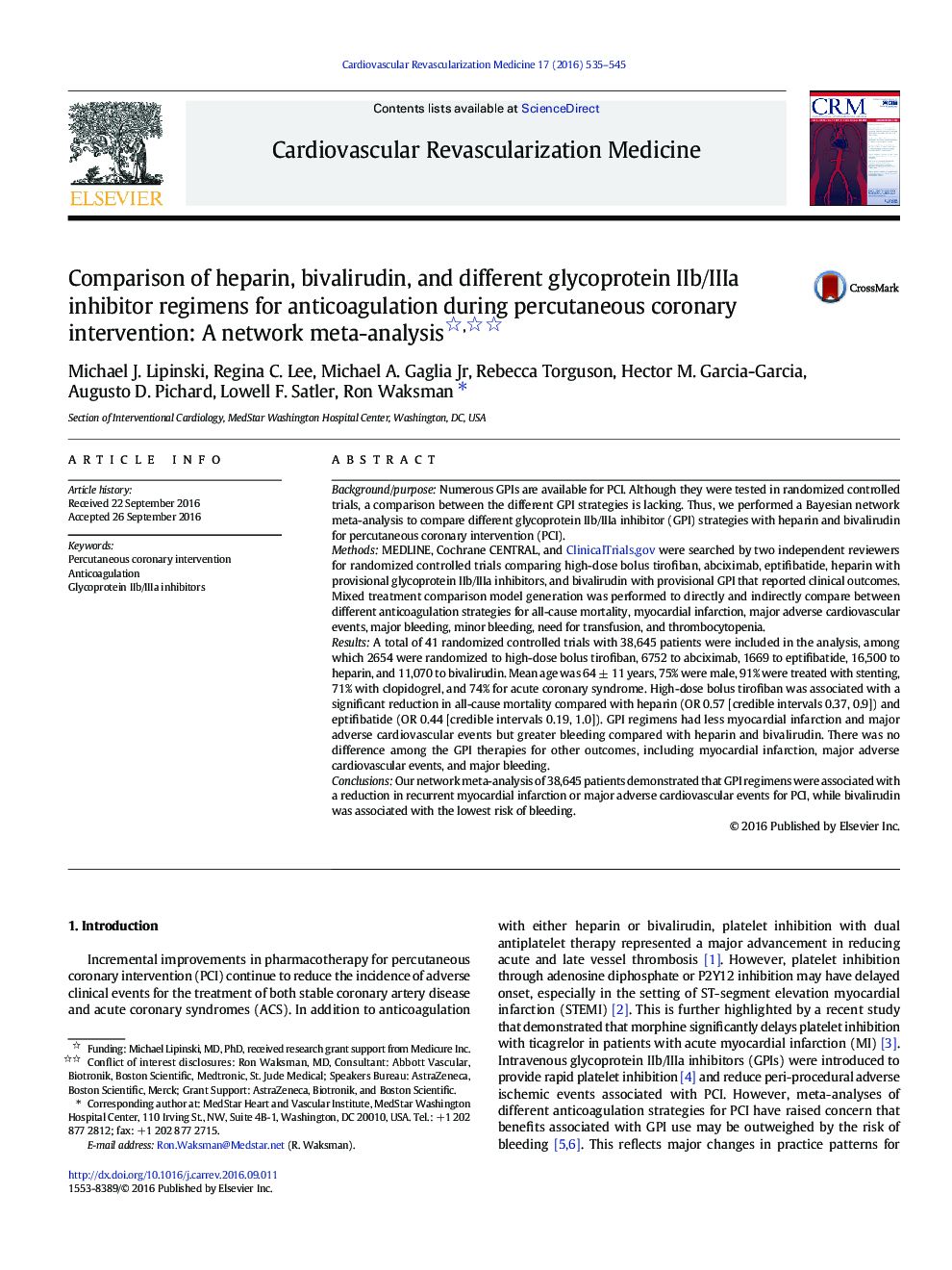| کد مقاله | کد نشریه | سال انتشار | مقاله انگلیسی | نسخه تمام متن |
|---|---|---|---|---|
| 5592774 | 1405037 | 2016 | 11 صفحه PDF | دانلود رایگان |

Background/purposeNumerous GPIs are available for PCI. Although they were tested in randomized controlled trials, a comparison between the different GPI strategies is lacking. Thus, we performed a Bayesian network meta-analysis to compare different glycoprotein IIb/IIIa inhibitor (GPI) strategies with heparin and bivalirudin for percutaneous coronary intervention (PCI).MethodsMEDLINE, Cochrane CENTRAL, and ClinicalTrials.gov were searched by two independent reviewers for randomized controlled trials comparing high-dose bolus tirofiban, abciximab, eptifibatide, heparin with provisional glycoprotein IIb/IIIa inhibitors, and bivalirudin with provisional GPI that reported clinical outcomes. Mixed treatment comparison model generation was performed to directly and indirectly compare between different anticoagulation strategies for all-cause mortality, myocardial infarction, major adverse cardiovascular events, major bleeding, minor bleeding, need for transfusion, and thrombocytopenia.ResultsA total of 41 randomized controlled trials with 38,645 patients were included in the analysis, among which 2654 were randomized to high-dose bolus tirofiban, 6752 to abciximab, 1669 to eptifibatide, 16,500 to heparin, and 11,070 to bivalirudin. Mean age was 64 ± 11 years, 75% were male, 91% were treated with stenting, 71% with clopidogrel, and 74% for acute coronary syndrome. High-dose bolus tirofiban was associated with a significant reduction in all-cause mortality compared with heparin (OR 0.57 [credible intervals 0.37, 0.9]) and eptifibatide (OR 0.44 [credible intervals 0.19, 1.0]). GPI regimens had less myocardial infarction and major adverse cardiovascular events but greater bleeding compared with heparin and bivalirudin. There was no difference among the GPI therapies for other outcomes, including myocardial infarction, major adverse cardiovascular events, and major bleeding.ConclusionsOur network meta-analysis of 38,645 patients demonstrated that GPI regimens were associated with a reduction in recurrent myocardial infarction or major adverse cardiovascular events for PCI, while bivalirudin was associated with the lowest risk of bleeding.
Journal: Cardiovascular Revascularization Medicine - Volume 17, Issue 8, December 2016, Pages 535-545